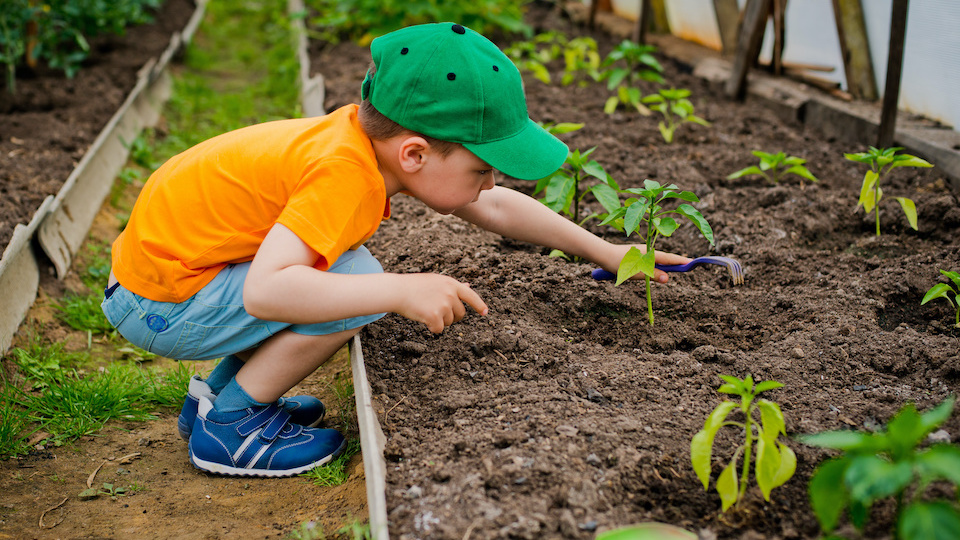Instead of plunking your kids in front of the tv or game console during the remainder of the stay at home order, why not try to use this time well by getting them into the yard and introducing them to gardening. Even if you are a novice yourself, you can learn alongside your child and grow beautiful food and flowers for your family. Here are a few easy ways to get them involved and keep them interested in planting and cultivating a garden.
Teach them to start seeds
Letting your kids create their own seed starting pots or recycling old containers such as ice cube trays and egg cartons can be a great way to get them involved in gardening in the early stages. Toddlers and school-age children will love getting their hands in the soil and will rush to check on their seeds progress each day. Use this as an opportunity to explain the process of sprouting to older kids and supplement those at-home science lessons.
Give them tools
Purchase a set of kid-sized tools for your little one to help inspire them to get out in the garden with you. They’ll love doing the same thing as mommy or daddy with their small shovels, rakes, and watering cans. This is a great way to let them have something new while giving them a practical gift that could help spark a love of gardening.
Let them have their own space
Section off an area in the garden where you can let your kid have free reign. Tell them they’re in charge of that piece of land and can plant whatever they want as long as they look after it. Be sure to give them some direction and guidance but try to let them pick out their own plants and placement. This is a great option for older children who are more independent and will be able to handle the responsibility of their own garden.
Have them harvest
There’s nothing more rewarding in the garden than harvest time. After weeks of weeding, watering, and watching your plant grow, being able to go out and pluck a fresh tomato or strawberry and enjoy it straight from the garden is a special treat. Give them a little basket and teach them how to harvest without damaging the produce. They’ll love to help out in this way, and picky eaters may even eat vegetables they wouldn’t have before.
Give them a job
Find tasks that your little one can complete like weeding a small area, running things to the compost bin, or watering containers. Once they have a job and some way that they are being helpful, they’ll start to take pride in their task and look forward to completing it.
Let them explore
Once your kid is set with their own tools, let them dig around a bit in the soil and see what they can find. Worms, grubs, and other critters are always fascinating and a great way to keep their interest. Tell them to smell herbs and feel plants with different textures to create an immersive, memorable garden experience.
Don’t forget about houseplants
If your child is on the fence about gardening and needs a little convincing, start small by allowing them to select an indoor plant to look after. They can keep it in their own room and will learn the needs of plants such as watering, sunlight, and warmth on a small scale before really getting their feet wet in the garden.
Allow them to get dirty
There’s nothing prim and proper about gardening. It’s all about dirt, grit, hard work. And yes, most likely a few scratched knees. And you know what? That is totally okay! It’s fine if your kid is running around your backyard with dirt on their face and their hands covered in soil. Let your kids be kids. Dress them in clothes that can get dirty, and don’t worry about staying clean. Playing outside and spending time in the garden builds character and increases their understanding of responsibility and ownership. Plus, it is just a ton of fun.
Remember, be patient with your children. They are kids, after all, and they won’t necessarily be interested in a marathon gardening session with back-breaking weed pulling or mulching. They’ll probably get distracted and hot and want to go inside. If they do, don’t try to push it or force them to stay outside as this can quickly make gardening into a chore rather than a fun, enjoyable way to spend time together. Continue to encourage them to get out and get their hands dirty and try to pass along the true magic of gardening. Even if they don’t fall in love with it when they get older, you are still forming great memories that will last long into adulthood.
-Susan Patterson




